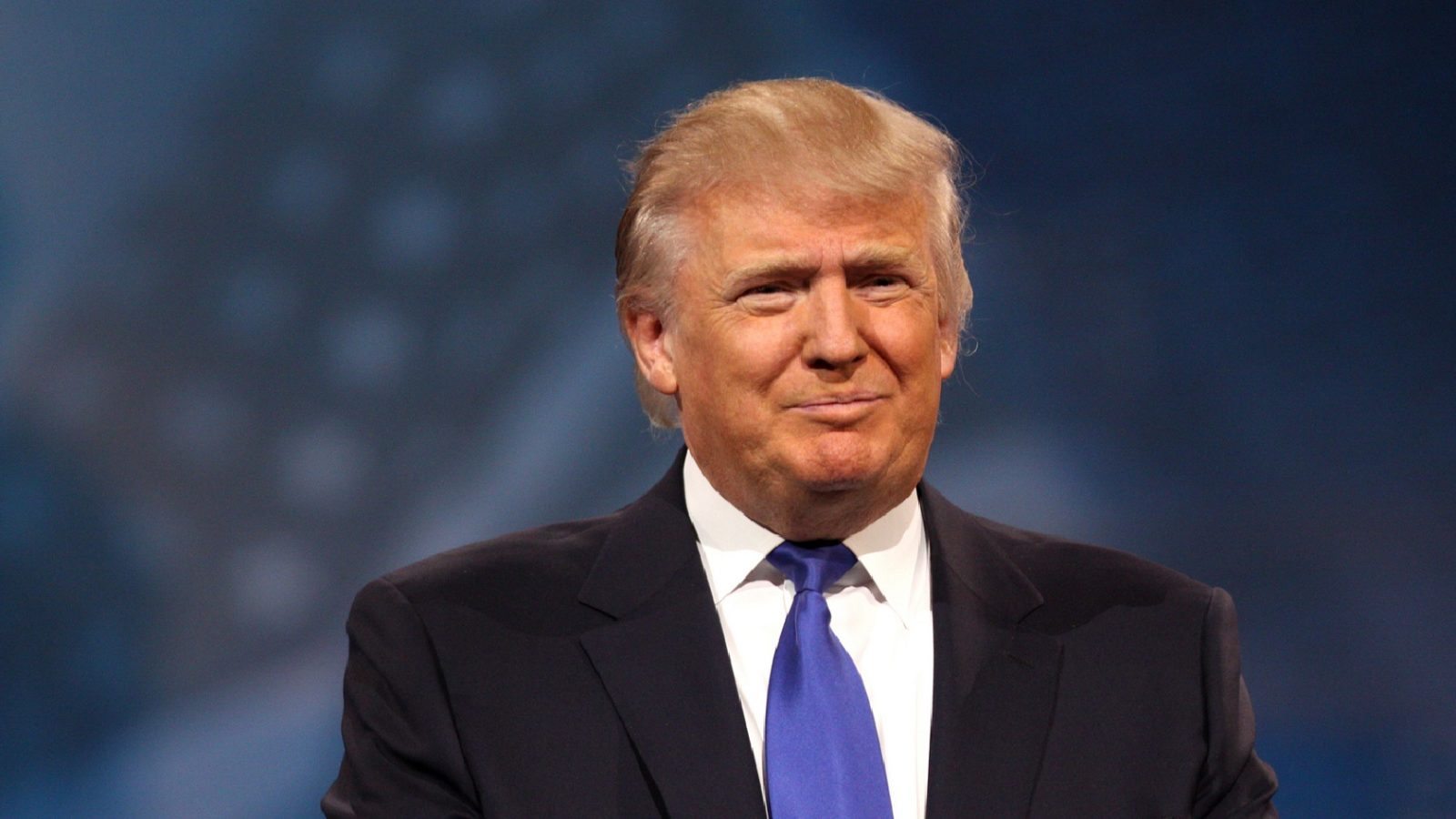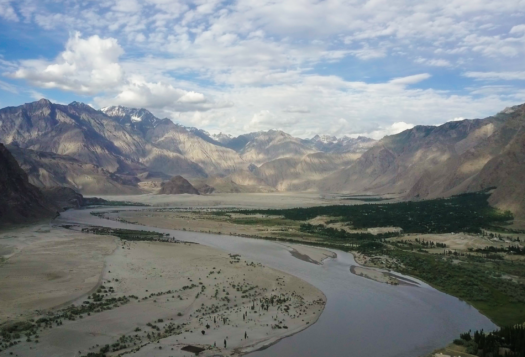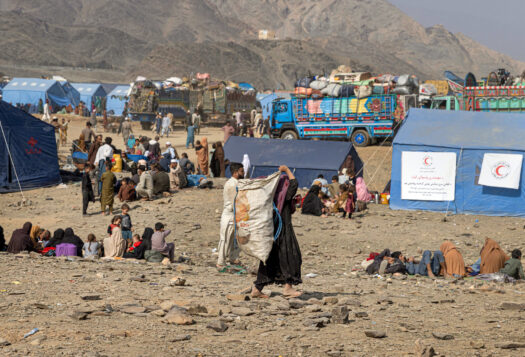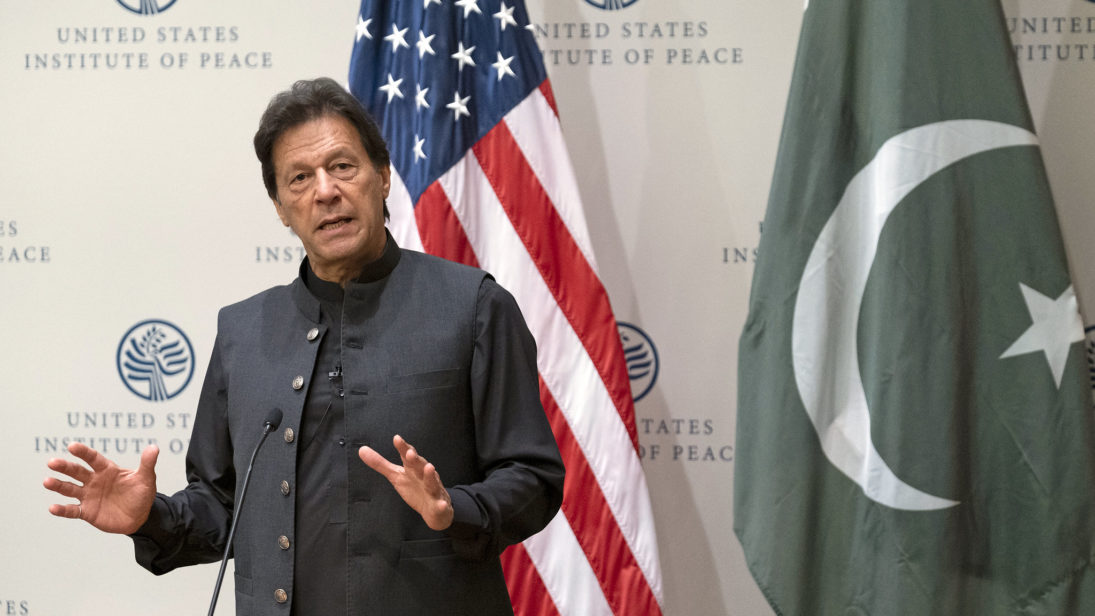
When Prime Minister Imran Khan assumed office a year ago, in August 2018, Pakistan-United States relations were at a low point following the Trump administration freezing aid over Pakistan’s “failure” to take decisive action against the Afghan Taliban and the Haqqani Network, the Modi government had been working to isolate Pakistan internationally, and relations with Kabul had devolved into each country accusing the other of failing to address crossborder militancy. Meanwhile, some expressed uncertainty over the future of Sino-Pakistan relations due to the ruling Pakistan Tehreek-e-Insaf (PTI)’s criticism of corruption in the China-Pakistan Economic Corridor (CPEC) projects.
Some were skeptical of Khan’s ability to set a foreign policy agenda and act on it due to his limited experience. However, being new to international politics also meant Khan had little historical baggage and came in with a fresh approach towards foreign policy. Khan’s global image as a World Cup winning cricket captain and philanthropist generated goodwill. Further, he rectified the mistake of the previous Pakistan Muslim League-Nawaz (PML-N) government by appointing a full-time foreign minister from the start of his tenure.
Being new to international politics also meant Khan had little historical baggage and came in with a fresh approach towards foreign policy.
Revisiting the Khan government’s foreign policy choices during the past 12 months reveals that despite multiple challenges, it has done well to strengthen ties with historic allies including China and Gulf countries, and begun rebuilding trust with the United States through cooperation in Afghanistan. Relations with India, however, remain a challenge for Pakistan’s foreign policy, particularly given recent setbacks after New Delhi revoked Jammu & Kashmir’s special status.
Afghanistan-Centered U.S.-Pak Relations
Coming into office, Khan’s administration wanted to reset United States-Pakistan relations, which had been frosty for a while. Trump started off 2018 with a tweet accusing Pakistan of harboring terrorists even as it received counterterrorism support from the United States and increasing pressure on Islamabad by influencing the Financial Action Task Force to put the country on a terror financing watch list. However, relations began to turn with a visit to Pakistan by U.S. Secretary of State Mike Pompeo in September 2018 and another a few months later by Senator Lindsey Graham, as the American desire to end the decades-long conflict in Afghanistan became a natural starting point for renewing the United States-Pakistan relationship. As the United States negotiated with the Taliban, Pakistan helped facilitate the Afghan peace process by bringing the Taliban to the negotiating table. In return, Pakistan did not receive any tangible reciprocity from the United States at first, but the tide has been turning recently.
Although Washington has maintained economic pressure on Islamabad through the International Monetary Fund (IMF) and the FATF, the State Department’s designation of the Balochistan Liberation Army as a terrorist group and the IMF’s decision to lend Pakistan a much-needed USD $6 billion in a bailout package are being viewed as tokens of American recognition of Pakistan’s role in facilitating the peace process in recent months. The Trump-Khan meeting in July, a result of intense lobbying by the Khan government, was a departure from recent misgivings between the two countries. Trump and Khan went from a war of words on Twitter just a few months ago to appearing alongside one another at a joint press conference where Trump recognized Pakistan’s efforts in the Afghan peace process, indicating the success the Khan government has achieved in improving bilateral ties with the United States in the past year.
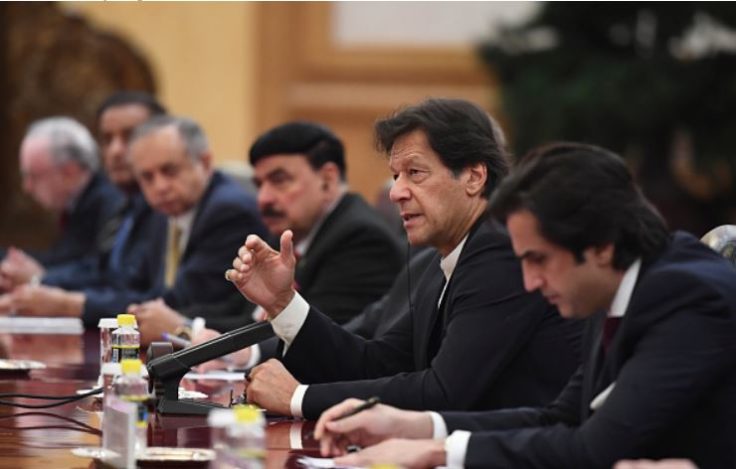
Rethinking CPEC
Relations with China under the new PTI government were not expected to get off to a good start. The PTI had historically been critical of corruption and a lack of transparency in CPEC projects, and in his early days in office, Khan was interested in reviewing Belt and Road (BRI) contracts.
In fact, Khan’s calls for shifting the focus of CPEC from large-scale projects to agriculture, job creation, and foreign investment may have impacted his first trip to China in November 2018 during which, despite signing 15 memorandums of understanding (MOUs), he was unable to secure immediate financial support from Beijing. Instead, Pakistan’s closest ally essentially told it to “fix its own problems” and that more talks were needed for Pakistan to receive financial support from China.
Despite the perceived failure of Imran Khan’s first China visit, Beijing later proposed various streams of bailout packages and investment to Islamabad, meant to expand areas of CPEC cooperation. In December 2018, officials from both countries met to broaden the scope of CPEC into areas including agriculture and socio-economic development, as earlier proposed by Khan. In March 2019, Beijing also extended financial support to strengthen Pakistan’s foreign exchange reserves. By the time Khan undertook his second trip to China in April 2019, CPEC entered into its second phase of projects more in line with Khan’s stance on prioritizing social development, including plans for projects in education, agriculture, and vocational training.
Although there were concerns about potentially rocky relations between China and Pakistan under the PTI government, the past year has seen the Khan administration navigate the relationship fairly well and shape CPEC projects so they better align with the PTI’s vision of Pakistan’s economic development.
Pakistan’s Challenging Relations with India
Over the past 12 months, Khan has reached out to India on several occasions, including sending a letter to Prime Minister Narendra Modi in September 2018 hoping to start dialogue and reiterating the same message in a phone call congratulating Modi on his reelection in May this year. Despite Khan’s overtures, however, Pakistan-India relations remain one of the core foreign policy challenges for the PTI government.
The Pulwama attack in February strained Indo-Pak ties and the Balakot airstrikes that followed tested Khan’s ability to respond to heightened tensions with India. Khan displayed statesmanship by trying to engage with Modi to ease tensions, unconditionally releasing the Indian pilot captured during the crisis with the hope that this goodwill gesture might help avert further escalation. Moreover, the Khan administration prioritized action against anti-India groups in an unprecedented manner, which was also acknowledged by Indian officials.
New Delhi’s abrogation of Kashmir negated Khan’s belief that the Kashmir issue could be resolved bilaterally with Modi as prime minister. With Khan ruling out the option of talks with India in the near future over Indian failure to engage in meaningful dialogue, it seems that the Indo-Pak relationship has once again taken a turn for the worse.
However, the bilateral relationship deteriorated following New Delhi’s recent abrogation of Article 370 of the Indian constitution, which strips Indian-administered Jammu & Kashmir of its autonomy. This move negated Khan’s belief that the Kashmir issue could be resolved bilaterally between Pakistan and India with Modi at the helm. With Khan now ruling out the option of talks with India in the near future due to Indian unwillingness to engage in the past, it seems that the Indo-Pak relationship has once again taken a turn for the worse.
Future Outlook
In the past year, the Khan government has maintained Pakistan’s historically strong relationship with China while improving bilateral ties with the United States, setting Pakistan up for continued positive relations with both countries. Pakistan-India ties continue to be the main challenge in the region, and ongoing tensions are likely to test Khan’s foreign policy prowess in the months ahead.
In the coming year, the two main foreign policy agenda items that Khan and his government will focus on are Kashmir and the Afghan peace process. With regard to Kashmir, Pakistan is likely to continue using diplomatic means to internationalize the dispute and bring pressure on India although thus far, Islamabad has not received meaningful support from the international community.
In terms of the Afghan peace process, Islamabad hopes that its bilateral ties with Washington will not remain limited to Afghanistan and it is looking to broaden the relationship. However, the United States seems reluctant to offer significant support to Pakistan unless it plays its part in the ongoing peace process. In return, Pakistan wishes for the renewal of military assistance, assurances that Pakistan will not be placed in FATF’s blacklist, future monetary support from the IMF, and an increase in bilateral trade. In the coming year, Khan will likely pursue these foreign policy goals in exchange for Pakistan’s support for U.S. objectives in Afghanistan.
Editor’s Note: August 2019 marked the first anniversary of the Pakistan Tehreek-e-Insaf’s ascent to power and Imran Khan’s first year in office as Pakistan’s prime minister. In this series, SAV contributors Fahad Nabeel, Fizza Batool, and Shahroo Malik assess Khan’s performance and that of his cabinet over the past year, analyzing the impact on Pakistan’s governance, economic development, and foreign relations. Read the entire series here.
***
Image 1: USIP via Flickr
Image 2: Madoka Ikegami-Pool via Getty Images
